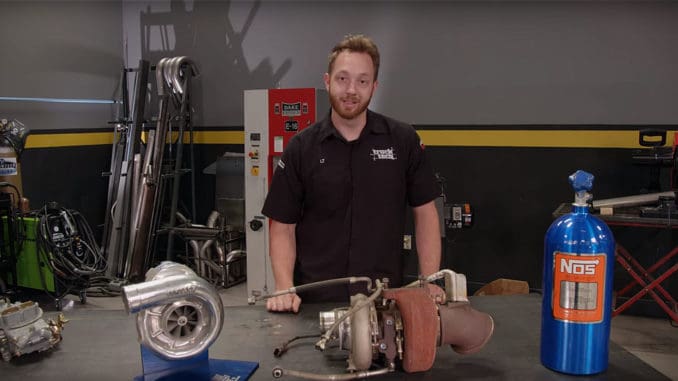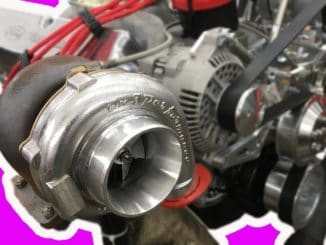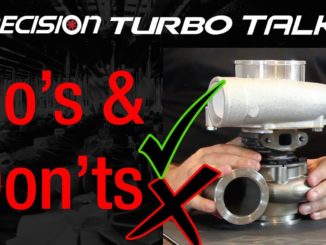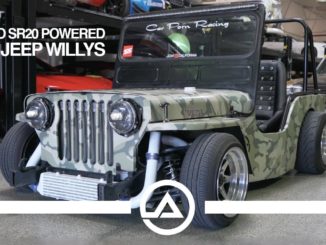
Installing a power adder is a great way to pump up the power and torque in your vehicle. There are, however, several different options available which can make deciding which one to go with difficult.
A supercharger, in general terms, is a device that bolts onto the engine and is usually mechanically coupled by a belt. Its basic function is to suck in air from the atmosphere and pump it into the engine filling the cylinders with much more air and fuel than they would be able to draw in by themselves. Therefore, increasing power and torque.
A positive displacement, or root style blower, moves a fixed volume of air for every rotation. So the fast it spins, the more volume of air it’s going to pump. In theory, they’ll produce the same amount of boost in the manifold regardless of how fast the blower is actually spinning. These are common on factory cars like ZR1s, CTS-Vs, Audi S4s, and several others. They’re really driveable and make great low-end torque.
Another popular option is the centrifugal supercharger. They too are driven by a belt from the engine but operate quite differently. The faster you spin a centrifugal blower, the volume of air per revolution increases. If you watch a boost gauge, you’ll notice a centrifugal blower increases boost with engine RPM usually peaking at redline. And because of this, they have a peakier power band and are usually found on an engine that spends more time at higher RPMs or on a lighter weight vehicle. A centrifugal supercharger is much less complex to install than a root style and the best part is they produce a lot less heat, which we all know colder air is better.
A turbocharger and centrifugal supercharger look very similar and on the compressor side, they function almost exactly the same. The big difference is that a turbocharger is driven by your exhaust. There are more and more cars coming from the factory with a turbocharger – and for good reason. There is no parasitic loss on the engine like you get from spinning a supercharger. The boost curve on a turbo is somewhere in between that of a centrifugal supercharger and root style blower so they can be very fun to drive. When it comes to installing an aftermarket turbo system though, is where there is a disadvantage. It’s pretty complicated as you have to get in and modify the exhaust system, the intake system, the oil system, and sometimes even the cooling system.
Finally, you have nitrous oxide or the chemical supercharger. It’s by far the low-cost leader of the group and the easiest to install. So if you need to get power added in a hurry, this may be your best bet.




